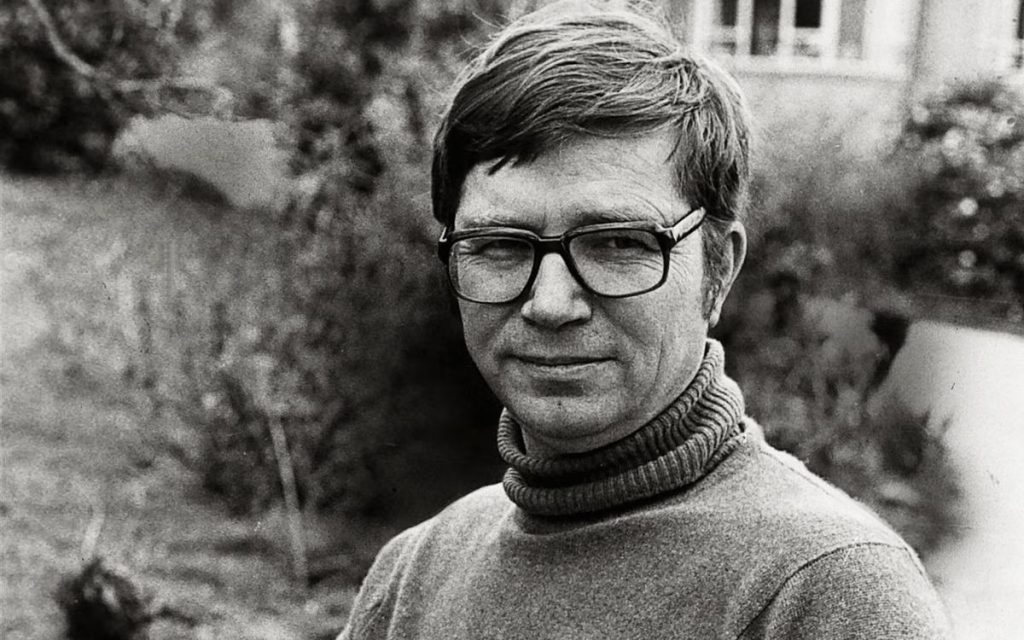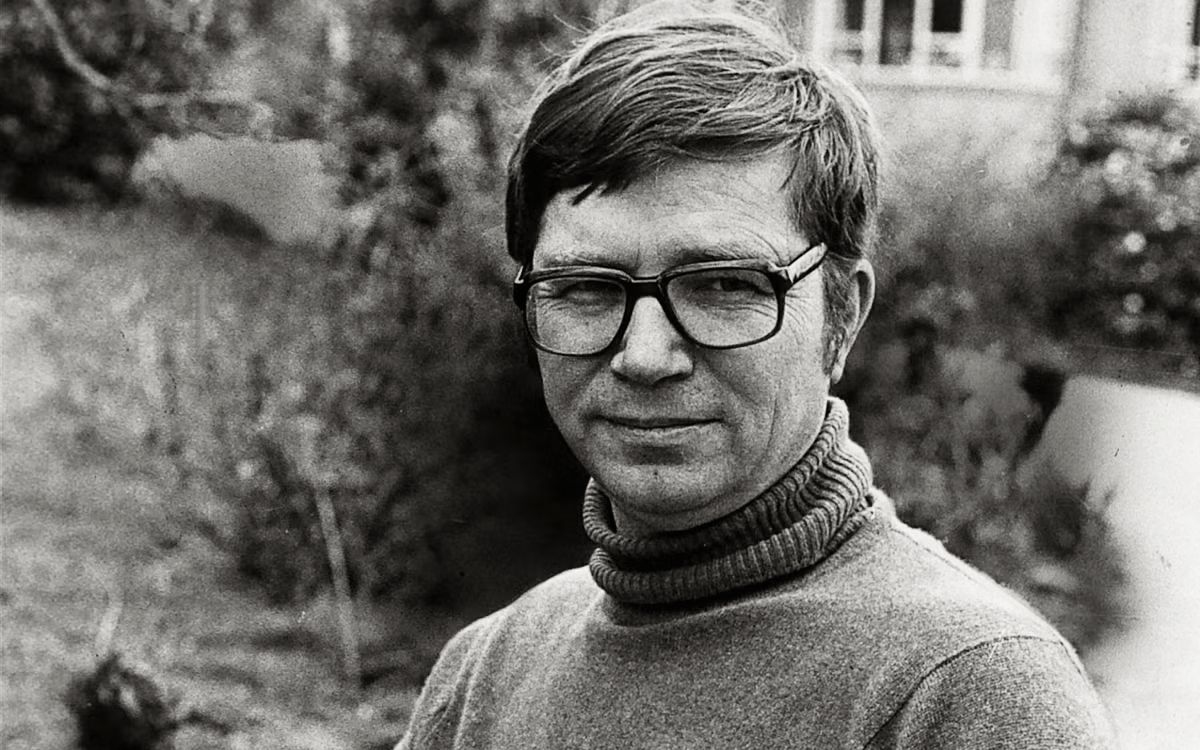Colin Wilson, the cult author who uncovered Britain’s strangest secrets, from killers to clairvoyants, explored the dark side of the human mind, writes JOHN WEST
Colin Henry Wilson was born on 26 June 1931 in Leicester, England. He left formal schooling at 16 and worked a series of unskilled jobs, including factory labour and dishwashing, before briefly serving in the Royal Air Force.
Wilson once famously slept rough on Hampstead Heath while dedicating himself to study in the British Museum’s Reading Room. It was here, amid the stacks of books and long hours of reflection, that he wrote his first and most famous work, The Outsider (1956).
The Outsider: Instant Impact
Published in May 1956, The Outsider examined alienation through the lives of figures such as Van Gogh, Kafka, Camus and Nietzsche.
The book was an immediate success. Colin Wilson was instantly thrust into the literary spotlight, associated with the “Angry Young Men” of British literature.
Critics hailed the debut as remarkable; Cyril Connolly called it “one of the most remarkable first books I have read for a long time.”
Despite his early success, Wilson soon faced a critical backlash. His follow-up, Religion and the Rebel (1957), was dismissed by some as unoriginal.
Undeterred, he turned to fiction, publishing his first novel, Ritual in the Dark (1960), followed by Adrift in Soho (1961). Gradually, he rebuilt his reputation and demonstrated his versatility as a writer.
Further works developing his central theme of the “outsider” also followed: The Age of Defeat (published in the US as The Stature of Man, 1959), The Strength to Dream (1962), Origins of the Sexual Impulse (1963), Beyond the Outsider (1965), and Introduction to the New Existentialism (1966).

The Occult
In the early 1970s, Colin Wilson was approached to write a book on the occult and, at first, was reluctant. Though sceptical of paranormal claims, he eventually decided to undertake the project.
During his research, Wilson immersed himself in accounts of mystical experiences, telepathy, ESP and other phenomena. Far from confirming his doubts, the process led him to believe in the reality of the paranormal.
In 1971, The Occult was published, marking a critical resurgence and earning him renewed respect and recognition.
Colin Wilson never regarded the occult as mere superstition. In The Occult, he traced esoteric traditions—from alchemy and mysticism to modern parapsychology—arguing that they reflected humanity’s innate drive towards expanded consciousness.
For Wilson, the occult served as a form of optimistic existentialism: a philosophy that celebrated the latent powers of the human mind rather than fixating on despair.
He embraced Abraham Maslow’s concept of the “peak experience”—moments of intense insight and joy—believing that, through disciplined attention and cultivation of consciousness, such experiences could become more frequent and even enduring.
Other books on the paranormal would follow. Titles such as Mysteries (1978), Poltergeist! (1981), Afterlife (1987), and Beyond the Occult (1988) illustrate the breadth of his engagement.
Far from being a casual dabbler, Wilson corresponded with leading figures in parapsychology and studied case histories of telepathy, clairvoyance and mystical experience. He saw these accounts as further evidence that human beings possess extraordinary, though often dormant, abilities.
Friendship with Uri Geller
Among Colin Wilson’s most intriguing connections in the world of the paranormal was his friendship with Uri Geller, the Israeli performer famous for spoon-bending and demonstrations of psychic powers.
While many sceptics dismissed Geller as a clever illusionist, Wilson became convinced that Geller’s abilities were genuine.
Wilson wrote warmly about Geller and defended him publicly, insisting that the feats he had witnessed firsthand could not be dismissed as mere stage tricks.
To Wilson, Geller was living evidence that humans possessed latent psychic powers capable of reshaping our understanding of consciousness and reality.
Their friendship not only strengthened Wilson’s personal belief in the paranormal but also reinforced his broader philosophical argument: that humanity was on the verge of rediscovering forgotten or suppressed dimensions of its potential.
In 1976, Wilson published a book on his friend, The Geller Phenomenon.
Wilson’s fiction often reflected the same themes that preoccupied his non-fiction: the tension between ordinary consciousness and hidden forces.
Novels such as The Mind Parasites (1967) and The Philosopher’s Stone (1969) blend science fiction, psychology and esoteric speculation, dramatising the struggle between human potential and human darkness.
One of his later works, The Space Vampires (1976), was adapted into the 1980s film Lifeforce. However, Wilson was famously unimpressed with the result, telling fellow novelist John Fowles that Lifeforce was even worse than the much-criticised film adaptation of Fowles’ own novel The Magus.
Jack the Ripper and the Birth of “Ripperology”
Colin Wilson’s fascination with the hidden did not stop at the occult. He also delved into the shadowy world of crime, producing several books that explored humanity’s darkest impulses.
One of his most influential came in 1987, when he joined forces with crime historian Robin Odell to publish Jack the Ripper: Summing Up and Verdict. Their study offered a meticulous re-examination of the Whitechapel murders and is still regarded as one of the better accounts of the case.
The timing proved pivotal. The following year marked the centenary of the killings, and public fascination with the Ripper reached fever pitch.
Wilson and Odell’s study helped propel the killer from the foggy backstreets of history into the centre of modern culture.
It was Colin Wilson who first coined the term “ripperology”, now widely used to describe the study of Jack the Ripper and his crimes. Although he later distanced himself from the word — believing it had become too closely associated with the more eccentric fringes of Ripper studies.
For Wilson, the occult and true crime were two sides of the same coin. Mysticism and psychic phenomena represented the height of human possibility, while criminal pathology revealed the depths of human depravity.
Both domains, he argued, dwelt in all of us — the part of the human mind capable of extraordinary insight or horrific acts.
Understanding both extremes, he insisted, was essential to understanding humanity itself.
Mainstream critics often dismissed Colin Wilson’s occult writings as eccentric, and some were equally sceptical of his ventures into true crime.
Yet both areas of study reflected his central obsession: exploring the extremes of human nature, whether through spiritual vision or criminal pathology.
Among enthusiasts of paranormal research and crime history, his books provided both intellectual seriousness and a sense of wonder.
In the 1970s and ’80s especially, he became a central figure in what some called the “occult revival”.
Later Life and Legacy
A lifelong resident of Cornwall, Wilson continued writing well into his later years. He maintained an extraordinary personal library of some 30,000 volumes, often stored in garden sheds, and cherished listening to music and taking cliff walks with his dogs.
After suffering a stroke in 2012, he passed away peacefully on 5 December 2013 in St Austell, Cornwall.
Colin Wilson’s legacy lies in his insistence that marginal subjects deserve serious inquiry—whether mystical experiences, psychic powers, or the darkest acts of human behaviour.
Wilson’s engagement with the occult and crime was never about escapism. For him, exploring telepathy, mystical visions or the criminal mind was a way of affirming the untapped powers and dangerous potentials of the human mind.
He argued that the “outsider” — the person who feels alienated from ordinary society—may in fact be closest to glimpsing these hidden truths.
By the time of his death, Colin Wilson had not only secured his place as one of Britain’s most prolific authors but also as a thinker who insisted that subjects on the margins — whether mysticism, psychic powers or even Jack the Ripper — deserved serious inquiry.
He remains a central figure in the dialogue between philosophy, the occult and the darker recesses of human history.
Have you read any of Colin Wilson’s books? Share your thoughts in the comments!
John West is the producer of a new documentary series titled The Life and Work of Colin Wilson. He also co-wrote the final episode and appears in a bonus episode, Voyage to a Beginning: The World of Colin Wilson. The series, directed by Jason Figgis, is scheduled for release next year on streaming platforms. Read more about John West on his website.



